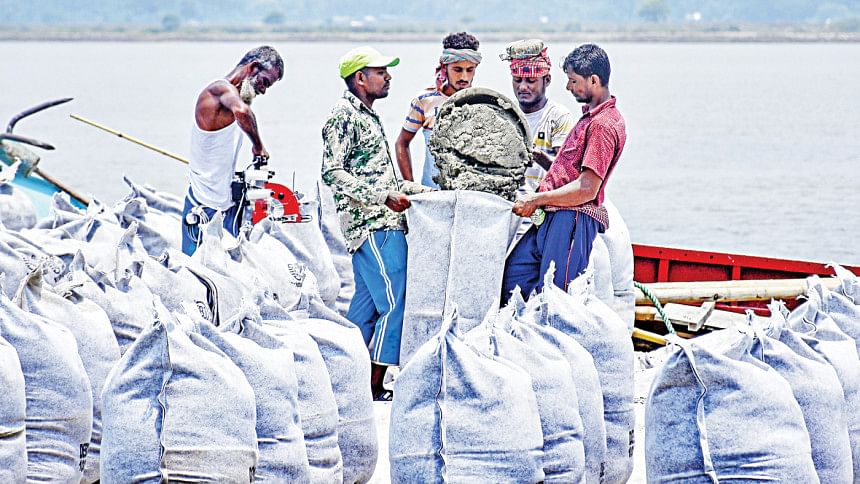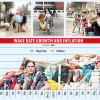Wage growth below inflation for 18th month straight

Although wage growth in Bangladesh has been slowly climbing since July 2021, it has remained below the inflation rate for the past 18 months consecutively, according to the Bangladesh Bureau of Statistics (BBS).
The wages of low and unskilled workers grew 7.52 percent year-on-year in July 2023, which was 2.17 percentage points below the inflation rate of 9.69 per cent that month, shows the Wage Rate Index of the BBS.
The case was similar in June, when the wages of workers across 44 occupations in agriculture, industry and services grew 7.32 percent, which was 2.42 percentage points below the inflation rate at the time.
Analysts say the widening gap between the inflation rate and wage growth is forcing low-income and unskilled workers to cut consumption amid falling real incomes and rising cost of living.
The wages of low and unskilled workers grew 7.52 percent year-on-year in July 2023, which was 2.17 percentage points below the inflation rate of 9.69 per cent that month
Rizwanul Islam, an economist and former special adviser for employment at the International Labour Office in Geneva, said real wages have been falling for almost one-and-half years now.
Besides, the rate of decline quickened in recent months, when the economy attained healthy growth.
"This is an issue of concern," he added.
Islam said the decline in real wages is an important factor contributing to rising inequality in the distribution of income.
"The distress caused by rising prices is affecting not only the poor, but also lower middle-income groups," he added.
The current inflation has spread to food items that are usually consumed by lower income people and that is why the impact is falling on a broader group of people.
"The bottom 40 percent of the population has been hit hard by the current inflation," Islam said.
He went on to say that a bigger concern is that the sharp rise in prices of certain items like fish, meat and eggs might compel lower income groups to stop consuming them.
"This could have adverse long-term effects on the health and nutrition of people. When that happens to the children and younger people, it can adversely affect the productive capacity of the working age population, which in turn affects future productivity," he added.
Echoing the same, Professor Selim Raihan, executive director of the South Asian Network on Economic Modeling (Sanem), said peoples' real income has been falling consistently.
"This means the real income of people is being eroded, especially for those who have no other source of income and only depend on their wages," he added.
This is because it indicates that the low-income people could not get enough recovery time.
For example, when any foreign nation faces higher inflation, it becomes soothing for a certain period and people get relief. And, they get enough strength to combat such a situation.
"But in the case of Bangladesh, we usually don't see it. There is no comfort room for low-income people," Raihan said.
Raihan went on to say that if we take food inflation into account, then the situation is actually worse.
"People are now suffering from food insecurity as it has increased by a large extent," he said.
So, addressing food insecurity should be the key concern of policy makers.
"If we look at our nearby countries like India, Thailand, Indonesia and Vietnam, they have controlled the inflationary pressure well," Raihan added.
On the other hand, Bangladesh could not handle the inflationary pressure for two reasons, namely ineffective monetary policies and domestic market management.

 For all latest news, follow The Daily Star's Google News channel.
For all latest news, follow The Daily Star's Google News channel. 





Comments